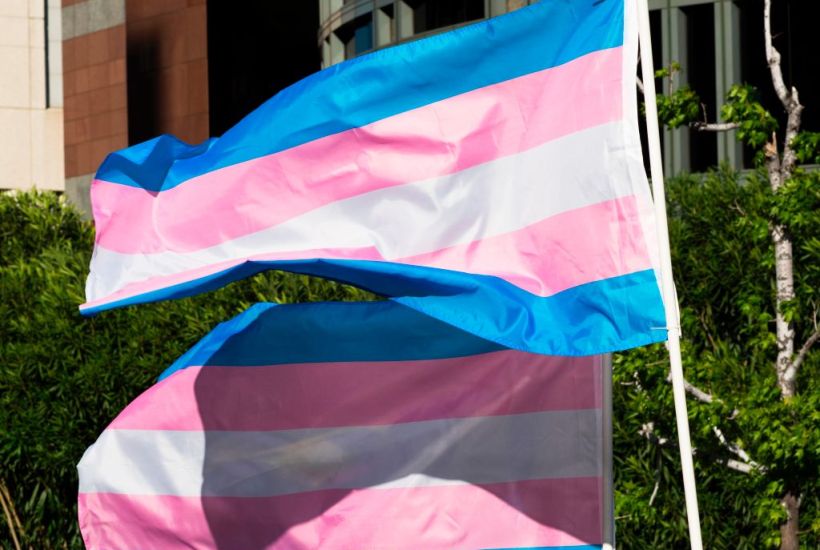Last month in Cairns the Royal Australian and New Zealand College of Psychiatrists (RANZCP) held a Queensland Branch Conference at which there was a stark admission by a prominent Queensland psychiatrist to the lack of evidence for the controversial gender transitioning of children that is happening under the gender affirmation model of psychiatric care for children with gender dysphoria.
I have had more to do with psychiatrists than I would have liked in my life. A genetic inheritance of insanity runs through my family in the form of Huntington’s Disease (HD). It might be a surprise to many readers that I have been passed over by the insanity gene. In having tested negative for the gene that leads to HD, I am labelled ‘not affected’ by the medical specialists in the field of genetic disease. Like many labels invented by doctors, this one is inaccurate.
After decades of dealing with the psychiatrists of the Queensland public hospital system, I’ll let you in on a secret: psychiatrists don’t always tell the truth to patients. The truth is sometimes distressing, and psychiatrists are in the game of reducing distress. Many of my family have been given false diagnoses of mental illnesses to avoid upsetting them with the truth. The truth is that they were going insane, and there was nothing anyone could do to help them.
Psychiatrists always told me the truth about what was happening to my family, because I was not the patient, and it wasn’t their job to lie to me. In my experience, if a psychiatrist is telling you the truth, you are probably not the patient.
Prominent paediatric gender psychiatrist Dr Stephen Stathis attended the recent North Queensland conference where he addressed his gender-critical colleagues with some truth-telling. Dr Stathis is the Medical Director of Child and Youth Mental Health Services at Children’s Health Queensland and was recently on Four Corners promoting the affirmation model of treatment for gender dysphoric children. Dr Stathis established the Queensland Children’s Gender Service in 2017.
The gender affirmation model of treatment for gender dysphoria is based on the theory that people have an inherent ‘gender identity’, and that this gender identity is either congruent with sex or incongruent. Because there is no way to tell if gender incongruence will cause a person lifelong distress with their body, psychiatrists perform predictive testing for the severity of gender dysphoria in children in an attempt to detect a kind of true transgenderism. The tests revolve around the question of whether the cross-sex identification in the child is ‘consistent, persistent, and insistent’.
Controversy has surrounded the practices of the affirmation model of treatment for gender dysphoria in Queensland, with recent claims that a Brisbane plastic surgeon is allegedly performing double mastectomies on girls as young as 13.
Under Dr Stathis, Queensland has embraced the medicalisation of gender non-conformity at higher levels than most other Australian states, with 922 patients being treated by Queensland paediatric gender clinics in 2022.
Gender-affirming treatments include puberty blockers to stop the development of adult sexual organs and secondary sex characteristics, as well as cross-sex hormones that allow the patient to imitate the secondary sex characteristics of the opposite sex.
One of the major assumptions of the affirmation model, is that if gender dysphoria does persist into adulthood, puberty suppression offers a patient the best chance to pass as the opposite sex and integrate more seamlessly into society, and this will make the person essentially happier. ‘Gender affirming care’ for children is primarily cosmetic in aim, the mental benefits are purported to be gained by the way society and the person themselves reacts to the body of the transgender person.
The problem is that there is no evidence gender affirmation treatment in minors has better outcomes on the mental health of the patient long term than if the person was allowed to mature sexually, with the ongoing assistance of psychological and social support.
It is important to note that in taking a more ‘watchful waiting’ approach, gender-critical psychiatrists do not assume that every person will stop identifying as transgender with puberty, just that the development of sexual organs will not hinder the mental health of the person, and will almost always help them.
Many adult trans-identifying individuals have fully developed and functioning sexual and reproductive systems. If gender has nothing to do with the type of genitals one has, why is allowing children’s sexual organs to develop inconsistent with a trans identity?
In his speech to the conference, Dr Stathis indicated that his focus is on the difficult task of shoring up the predictive testing for gender dysphoria in children, in an effort to catch only people with a kind of innate transgenderism, these individuals, it is assumed will benefit from the halting of puberty.
Before the gene was mapped for HD in 1993, psychiatrists used to perform predictive testing on children at risk of HD in an attempt to diagnose propensity to HD. Given the realities of gene inheritance, this was already a 50/50 guess, but they got it surprisingly wrong, surprisingly often. Predictive testing concluded, incorrectly, that my mother did not carry the defective gene. You will understand my scepticism in predictive testing for something that is far less evidentiary substantial than a genetic disease.
Stathis attempted to address what he called the elephants in the room, by which he appeared to mean gender-critical opposition to the affirmation model. One of the elephants Stathis mentioned was the explosion of gender dysphoria as a diagnosis in children. The increase in gender dysphoria testifies against the idea that transgenderism is a phenomenon manifesting naturally in the mind of children and suggests it is heavily subject to external and societal factors.
Even though Dr Stathis admitted that trans identification among children increased during Covid, he denied that it has become a type of social contagion among our young. Stathis claimed that just as left-handedness increased with societal acceptance, so has gender dysphoria increased with the growing acceptance of trans-identified people; a truly stupid argument.
Dr Stathis made two concessions in his talk to his gender-critical colleagues, one was that puberty blockers appear to affect bone density, and the other is that puberty blockers can no longer be considered a ‘pause’ on puberty, as 95 per cent of children who start on puberty blockers go on to take cross-sex hormones. The combination of puberty blockers with long-term synthetic hormones will stop puberty altogether, and there is no way to artificially induce a sex of puberty that is not native to the body. The person’s sexual organs and sexual function will remain undeveloped, or underdeveloped.
Dr Stathis skimmed briefly over the major issues of sterility and lack of sexual function in patients who have experienced puberty suppression and cross-sex hormones, sometimes with light jokes and what he called ‘fun examples’.
US gender surgeon Marci Bowers admitted that not one male child he had performed genital surgery on, who’d had puberty suppression, has gone on to experience an orgasm. A video of a US gender surgeon has recently done the rounds where a doctor appears to talk clinically and jokingly about the trauma that boys experience while dilating their surgically created neo-vagina every day, having never had any sexual experience or even masturbated because of pubertal suppression. Remember, when these people were little boys, they were told they could literally become women. Women are not de-sexed men. These children are being lied to by a medical industry that lacks the courage to tell them the truth.
In the recent episode of Four Corners, ‘Blocked’, we were introduced by Patricia Karvelas to Sapphire, a pre-pubescent male child who was celebrated as a trans girl. In a cute animation created by ABC Queer, we hear Sapphire excitedly announce he will soon be on puberty blockers. Sapphire’s family have moved to Queensland, allegedly because Sydney’s Westmead Hospital would not act fast enough to block Sapphire’s puberty.
The narrative presented by Four Corners is that ‘affirmation’ is best practice for suicide prevention. Dr Stathis admitted at the RANZCP conference that the evidence that the gender-affirming model is effective for suicide prevention is ‘weak to very weak’ and there is no evidence that childhood transition has any effect at all on co-morbidities. Co-morbidities are prolific in children presenting to gender clinics.
What Dr Stathis didn’t say on Four Corners, but did say to his colleagues, was that the use of puberty suppressants and cross-sex hormones in minors will likely have no impact on the distress of the patient in the long term in any way. ‘Yes I accept the evidence is weak,’ Dr Stathis said about the effectiveness of the affirmation model on long-term mental health. ‘And yes, a number of these young people don’t improve, but they don’t deteriorate, it’s not a reason not to do it.’
The issue of consent was another elephant Stathis promised to address, but didn’t in any satisfactory way. Queensland’s top gender psychiatrist claimed that it is parents, not children, who consent to the use of puberty blockers, and this was perfectly legal in Australia given legal precedent. Because 95 per cent of the children placed on puberty blockers will have their puberty permanently stopped, one has to ask how parents are given the right to consent to the de-sexing of their children without any evidential rationale for the benefit of a treatment.
While Dr Stathis claimed to be slaying elephants, in truth, the most obvious elephant in the room was the small-framed outspoken senior psychiatrist Dr Jillian Spencer, who has been was removed from clinical duties at Children’s Health Queensland for refusing to comply with dictates of the affirmation model of care, including compelled pronoun use. Dr Spencer rose during the question time of Dr Stathis’ speech to highlight that the entire basis of ‘gender affirming’ paediatric care was ‘dodgy’ and there is an urgent need for an independent inquiry into the affirmation model of care for children and young people.
A growing number of Queensland clinicians are raising concerns about the approach of Queensland gender clinics toward children and many psychiatrists refuse to refer children to the gender clinics because of safety concerns for children’s ongoing health including their reproductive and sexual health.
At the introduction of the Births Deaths and Marriages Registration Bill in Queensland, earlier this year, LNP Member for Ninderry Daniel Purdie suggested ‘the medical director of the gender clinic’ (Dr Stephen Stathis) may be shielding a conflict of interest by blocking an enquiry into the affirmation model. He said that the ‘real or perceived conflict of interest … should not allow the silencing of serious concerns raised by these senior medical professionals.’
The affirmation model forms the ‘scientific’ rationale for the social justice claims that have provided the moral and human rights basis for self ID legislation being introduced across Australia. The key claim of trans activists is that the human rights of transgender people are breached with speech that causes life-endangering distress to trans people by failing to affirm an individual’s gender identity.
Life-endangering speech can include expressing women’s rights to single-sex spaces and denying that people can literally change sex. Affirmation has morphed from psychiatry into a powerful technology of government that is used to change the definition of human sex categories and justify the silencing of dissent with completely false human rights claims.
Shannon Fentiman, the former attorney General of Queensland, now Queensland’s Health Minister, said in a speech to Parliament that sex categories on birth certificates had to be changed from based in sex, to being based in identity, because certain people needed documents for ‘self-affirmation and acceptance by the government’.
The reform to the Births, Deaths and Marriages Registration Bill (BDMRB) brought self ID to Queensland, and Fentiman openly stated in her speech to introduce the legislation, that the legislation was for the sole benefit of trans-identified people to be affirmed by government and society.
Women who opposed the legislation were told by Shannon Fentiman that they were ‘cloaking’ their transphobia ‘in the guise of women’s safety’ and they should take heed to the ‘Australian Psychological Society’ who ‘has warned against casting undue suspicion on an individual’s motives for stating a particular sex’.
Hate speech legislation is not far away in Queensland, which will claim that failing to affirm trans-identified people is harmful to the health of trans-identified Queenslanders.
Most glaringly absent from Stathis’ analysis at the conference and elsewhere is the lack of consideration for homophobia, misogyny, pornography, sexual abuse, and autism in the rise of trans identification in our young and in the diagnosis of gender dysphoria itself.
There is strong established research to indicate that gender nonconformity in children is a pre-indicator for homosexuality, not all gender non-conforming children will go on to be homosexual, but the link is strong and long established in research and anecdotally in society. The targeting of gender non-conforming children with medical intervention including sterilisation and surgery is sharply criticised by emerging gender-critical gay rights groups.
Last year in Queensland 80 new patients were prescribed puberty blockers in Queensland by the children’s gender service. These children are being prescribed the removal of their sexual development in line with an unsubstantiated theory that is promoted by the state itself. The lifelong treatments these children are being prescribed is not just synthetic hormones, but the lies that we must all tell the patient.
In trying to bring some conclusions to his messy and contradictory talk, Dr Stephen Stathis made a startling plea to his gender-critical colleagues: ‘Let’s not have an argument about the fact that the treatment of gender dysphoria is experimental and based on weak and very weak data unless you want to acknowledge that everything we do in child and adolescent psychiatry, and probably in adult psychiatry is experimental.’
Dr Stathis did not give his colleagues the warm totty they would have liked to justify what the affirmation industry tells children, but the psychiatrists of the RANZCP are not Dr Stathis’ patients, they must face the truth, and the truth is frequently distressing.
Edie Wyatt writes on culture, politics, and feminism. She tweets at @msediewyatt, blogs on Substack and you can catch her on Welcome to the Dollhouse
Got something to add? Join the discussion and comment below.
Get 10 issues for just $10
Subscribe to The Spectator Australia today for the next 10 magazine issues, plus full online access, for just $10.


























Comments
Don't miss out
Join the conversation with other Spectator Australia readers. Subscribe to leave a comment.
SUBSCRIBEAlready a subscriber? Log in